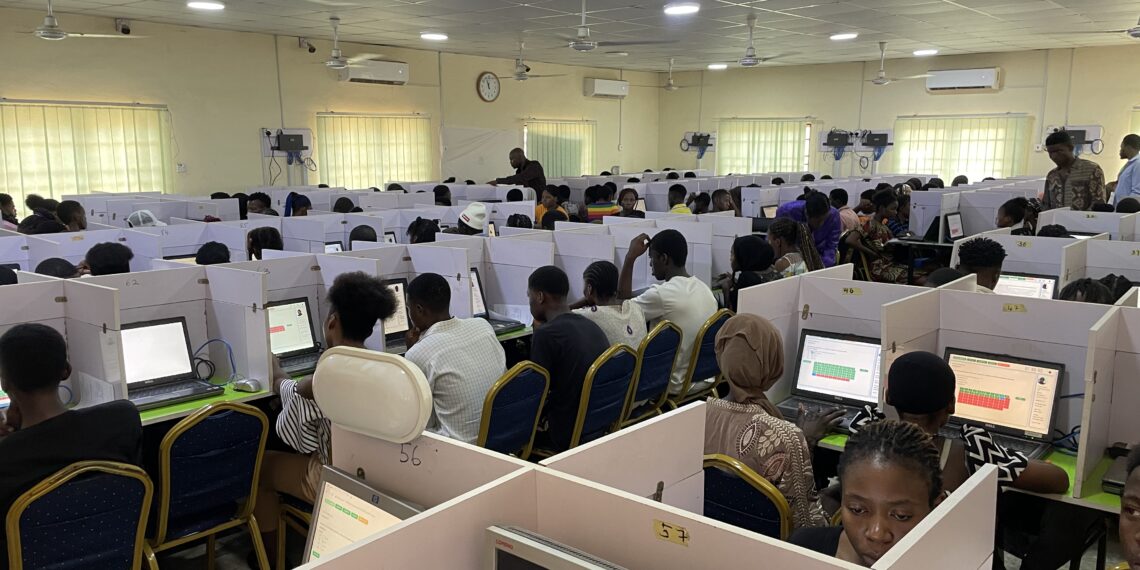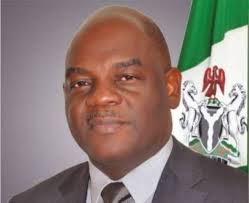The Senate has passed the Student Loans (Access to Higher Education) Act (Repeal and Re-Enactment) Bill, 2024 into law
The resolution of the Senate came after it considered the report of the Senate Committee on Tertiary Institutions and TETFUND that considered the Bill.
The Chairman of the Committee, Senator Muntari Dandutse (APC – Katsina South) presented the report at plenary on Wednesday

President Bola Tinubu had last wednesday transmitted the Bill to the National Assembly for its consideration and passage.
The Senate had given the Bill accelerated hearing by suspending relevant sections of its standing rules and referred the Bill to the Committee of the Whole for consideration.
After the debate on the Bill, Senate President Godswill Akpabio referred the Bill to the Senate Committee on Tertiary Institutions and TETFUND for further legislative work and to report back in one week.
The Bill seeks to provide easy access to higher education for indigent Nigerians through interest free loans from the Nigerian Education Loan Fund established in the Act with a view to providing education for all Nigerians.
Some amendments sought to the Act by by President Tinubu, according to an explanatory memorandum made available to reporters include “the establishment of the the Nigeria Education Loan Fund (NELFUND) as a body corporate that that can sue and be sued in its name and has the power to acquire, hold, and dispose of movable and immovable property for the purpose of its functions.
“This ensures that the Fund can legally enter contracts, including loan agreements and may also initiate action to ensure repayment by beneficiaries.
“It also empowers the Fund to provide loans to qualified Nigerians for tuition, fees, charges, and upkeep during their studies in approved tertiary education
institutions and vocational and skills acquisition institutions in
Nigeria.
“It empowers the Fund to build, operate, and maintain a diversified pool of funds to
provide loans to qualified applicants and ensure access to higher education, vocational training, and skills acquisition.”
“These changes,” it indicated, would “ensure that students can apply for and receive loans to cover tuition, institutional charges and some upkeep costs.
“It also separates the Governance functions from the management operations of the NELFUND by establishing a Board of Directors with a Chairman and Secretary.
“The board’s members are drawn from the relevant ministries, regulatory bodies, and participating agencies, including the
Federal Ministries of Finance and Education, the FIRS, NIMC, NUC, NBTE, and NCCE, as well as representatives of universities, polytechnics, and colleges of education, students of tertiary institutions, and the organised private sector.
“It also properly defines the resource structure of the Fund by, amongst other things, establishing the General Reserve Fund into which shall be paid 1% of all taxes, levies and duties collected by the Federal Inland Revenue Service and accruing to the benefit of the Federal Government of Nigeria.
“It indicated that this is from which the Fund shall pay amounts payable as loans to
qualified applicants for tuition, fees, charges, and upkeep, as well as the Fund’s operational expenses and such expenditures necessary to attaining the Fund’s objectives and functions.”
On changes to Eligibility Criteria for Applicants, the new Bill removed the family income threshold to enable Nigerian students to apply for loans and accept responsibility for repayment according to the Fund’s guidelines.
It also removed the guarantor requirement so that students can apply for and receive loans subject to application and identity verification guidelines as provided by the Fund.
Besides, Student applicants can no longer be disqualified based on their parent’s loan history.
It established a justice and fairness provision mandating the Board to ensure a minimum national spread of loans approved and
disbursed in each financial year.
Applicants to the Fund may apply for loans to cover tuition and other fees payable to the school and maintenance allowance
payable to the student.
On repayment of loans, the Bill indicated that beneficiaries of the Fund shall begin as soon as the beneficiary becomes employed in any capacity.
According to the brief, the Fund shall not initiate loan recovery efforts until two years after the completion of the National Youth Service Corps programme.
It stated that a beneficiary may request an extension of enforcement action by the Fund by providing a sworn affidavit indicating that he is not employed in any capacity and is not receiving any income.
It pointed out that any person who provides a false statement to the Fund under
this section is guilty of a felony and is liable to imprisonment for three years.
It also makes provision for loan forgiveness in the event of death or acts of God causing inability to repay.



